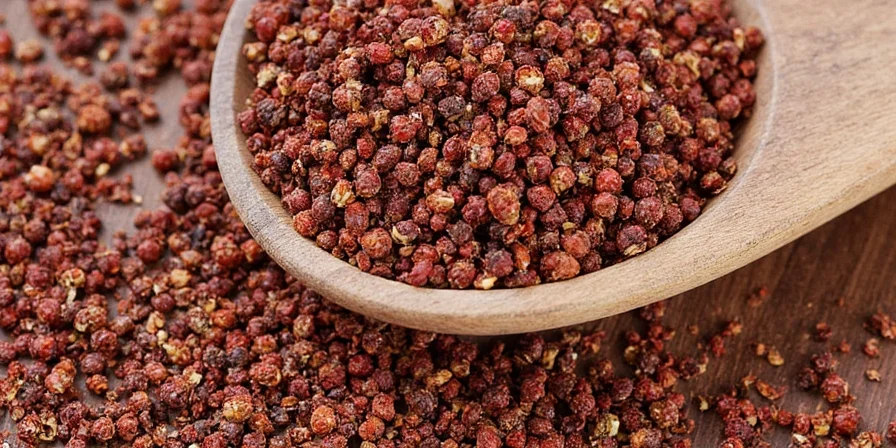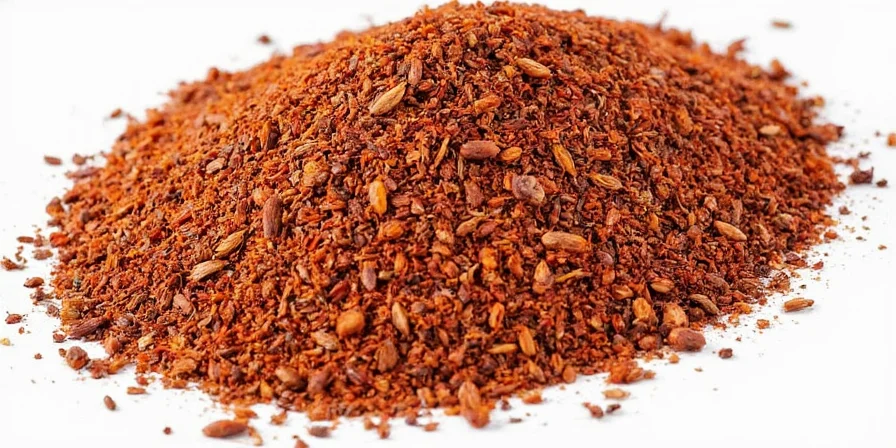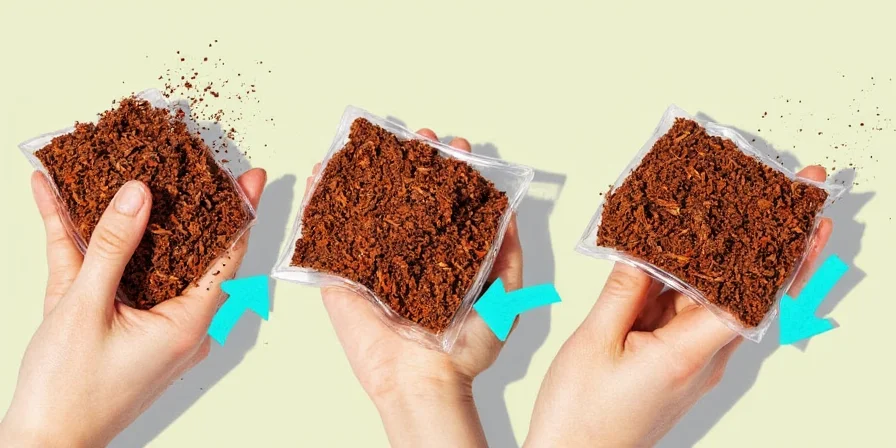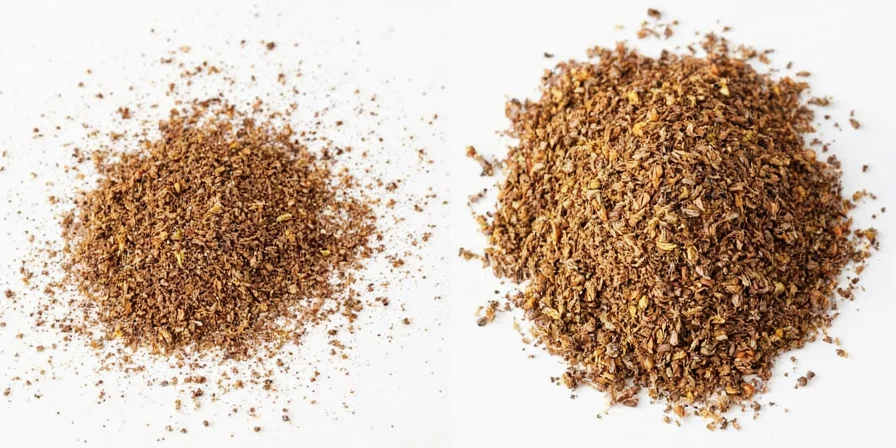Urfa Biber is a Turkish chili flake with deep burgundy color, moderate heat (25,000-45,000 Scoville units), and complex smoky-sweet flavor from natural fermentation—distinct from regular chili flakes due to its raisin-like notes and tobacco undertones. Here's exactly how to identify authentic Urfa Biber, where to buy it, and 7 professional techniques to maximize its unique flavor in everyday cooking.
Table of Contents
- What Makes Urfa Biber Different?
- Heat Level vs Common Alternatives
- How to Spot Authentic Urfa Biber
- 7 Pro Usage Techniques You Need
- Urfa Biber vs Aleppo Pepper vs Chipotle
- Quick Recipe Applications
- Storage That Preserves Flavor
- Where to Buy Genuine Urfa Biber
- Critical FAQs Answered
What Makes Urfa Biber Different from Regular Chili Flakes?
Unlike mass-produced chili flakes, authentic Urfa Biber comes exclusively from Şanlıurfa, Turkey, where chilies undergo a unique sun-drying and fermentation process. Peppers are wrapped in cloth overnight to develop lactic acids (creating natural smokiness), then sun-dried for 3-5 days. This produces deep burgundy-to-purple flakes with complex flavor notes of raisin, tobacco, and dark chocolate—not just heat. The result? A versatile spice that enhances dishes without overwhelming them, making it ideal for both savory and sweet applications.

Heat Level & How It Compares to Other Spices
Understanding Urfa Biber's heat is critical for proper usage:
- Scoville Rating: 25,000–45,000 SHU (milder than cayenne at 30,000-50,000 SHU)
- Heat Profile: Gradual warmth that builds slowly (unlike the immediate burn of red pepper flakes)
- Unique Trait: Smokiness comes from natural fermentation—no liquid smoke added
This moderate heat level makes Urfa Biber perfect for everyday cooking where you want flavor complexity without intense spiciness.
How to Identify Authentic Urfa Biber (Avoid Imitations)
Many "Urfa Biber" products are imitations. Look for these authenticity markers:
- Color: Deep burgundy or purple (not bright red like standard chili flakes)
- Aroma: Smoky with distinct raisin notes (artificial versions smell like liquid smoke)
- Texture: Crisp, flaky consistency that releases flavor when heated
- Packaging: Must say "Şanlıurfa" and include harvest year (freshness matters)
Be wary of products labeled "Isot" without regional designation—true Isot refers specifically to Urfa's traditional spice.
7 Pro Techniques for Using Urfa Biber Effectively
- Oil Infusion Method: Steep 1 tsp in ¼ cup warm olive oil for 2 hours (creates instant smoky oil for drizzling)—superior to adding flakes directly to dishes
- Meat Finish: Sprinkle over grilled meats in the last 2 minutes (preserves volatile flavor compounds destroyed by high heat)
- Chocolate Enhancement: Add ⅛ tsp to dark chocolate recipes (creates sophisticated bitter-sweet complexity)
- Dip Integration: Mix ½ tsp into hummus or labneh (adds depth without noticeable heat)
- Breakfast Boost: Sprinkle on avocado toast with olive oil (complements creamy texture)
- Substitute Strategy: Replace ½ tsp Urfa Biber for every 1 tsp paprika in recipes for instant smokiness
- Storage Hack: Freeze in ice cube trays with olive oil for ready-to-use flavor bursts
Urfa Biber vs Aleppo Pepper vs Chipotle: Critical Differences
| Spice | Heat (SHU) | Flavor Profile | Best For | Common Mistakes |
|---|---|---|---|---|
| Urfa Biber | 25,000-45,000 | Smoky, raisin, tobacco | Oils, finishing, chocolate | Using like regular chili flakes |
| Aleppo Pepper | 10,000-15,000 | Fruity, nutty, mild | Stews, pastas | Substituting for heat |
| Chipotle Powder | 2,500-8,000 | Smoke, earthy, woody | BBQ, salsas | Overusing (easily dominates) |
| Regular Chili Flakes | 30,000-50,000 | Sharp, grassy | Pizza, pasta | No substitution for Urfa's complexity |

3 Foolproof Recipe Applications (Ready in 5 Minutes)
- Urfa Biber Olive Oil: Heat ½ cup olive oil to 110°F, add 1½ tsp Urfa Biber, steep 2 hours. Strain and use for finishing roasted vegetables or bread.
- 5-Minute Smoky Hummus: Blend 1 can chickpeas, 2 tbsp tahini, 1 lemon juice, ½ tsp Urfa Biber. Drizzle with Urfa-infused oil.
- Chocolate-Dipped Pretzels: Melt dark chocolate, stir in ¼ tsp Urfa Biber, dip pretzels, sprinkle with flaky salt.
Storage Methods That Preserve Flavor (Science-Backed)
Urfa Biber's volatile compounds degrade quickly. Maximize shelf life with these methods:
- Short-term (3-6 months): Airtight glass container in dark pantry (never clear plastic)
- Medium-term (6-12 months): Vacuum-sealed container with oxygen absorber
- Long-term (18+ months): Portion into ice cube trays with olive oil, freeze, then transfer to labeled freezer bags
Critical tip: Never store near stove or sink—moisture and temperature fluctuations destroy flavor compounds within weeks.
Where to Buy Authentic Urfa Biber (2025 Verified Sources)
Avoid common pitfalls when purchasing:
- Avoid: Products without "Şanlıurfa" designation or harvest date
- Price indicator: Genuine Urfa Biber costs $12-$18/oz (anything cheaper is likely imitation)
- Top verified sources:
- Burlap & Barrel (single-origin, traceable)
- Mariani (Turkish importer with direct farm relationships)
- Etsy Turkish spice shops with harvest year documentation

Critical Urfa Biber Questions Answered
Is Urfa Biber the same as Isot Pepper?
Yes—Isot is the Turkish name for Urfa Biber. Authentic products will specify "Şanlıurfa Isot" on packaging. Beware of "Isot" labeled products without regional designation, as this often indicates imitation.
Can I substitute smoked paprika for Urfa Biber?
Not directly. Smoked paprika provides smoke but lacks Urfa's raisin-like sweetness and moderate heat. For closest approximation: mix ½ tsp smoked paprika + ¼ tsp ancho chili powder + tiny pinch of cocoa powder.
Why does my Urfa Biber taste bitter?
Bitterness indicates either: 1) Overheating during cooking (add in last 2 minutes), 2) Old product (should be used within 12 months), or 3) Artificially smoked imitation. Authentic Urfa has balanced sweet-smoke profile.
Does Urfa Biber need to be cooked?
No—its flavor shines when used as finishing spice. Cooking destroys delicate volatile compounds. For best results, sprinkle on dishes just before serving or infuse in oil at low temperatures (under 120°F).











 浙公网安备
33010002000092号
浙公网安备
33010002000092号 浙B2-20120091-4
浙B2-20120091-4